open futurelab 2023
-
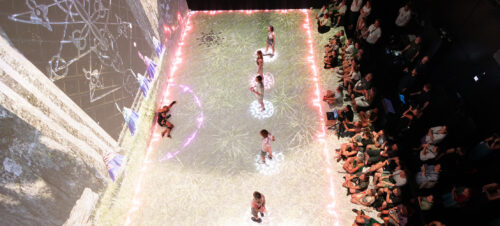
SHARESPACE
Exploring Social Spaces with Avatars
How could humans use digital avatars in the near future? How can we engage in social situations that include both human and automated avatars? And what technology do we need to explore these ‘hybrid’ spaces together? This is the focus of the European R&D project SHARESPACE.
-
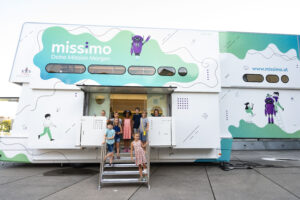
missimo
Mobile STEAM Learning for Kids
missimo is a project for children aged eight to ten that offers many experiments on topics such as AI, robotics, and programming. The special appeal: missimo visits primary schools in Austria’s rural areas by truck.
-

Faust VR
Virtual Dive into Theater History
The virtual reality application Faust VR combines a digital recreation of the famous “Faust” production by Max Reinhardt from the 1930s with a specially created dramaturgy: It leads visitors through the formative elements of the play in the unique “Faust town”.
-
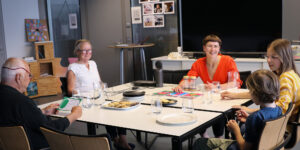
Bridge 2040
Intergenerational Game for Future Stories
Bridge 2040 is a card game in which children and senior citizens develop future narratives together, building a bridge between the generations. It has been expanded to be used in different settings such as innovation workshops and is now available in German, English, and Japanese.
-

Oribotic Instruments
Folding Sound with Origami Robotics
Our question for this work, What happens to our experience of space when we fold sound? is situated in our research into fundamental artistic methods for origami and robotics, following our central theme of Fold Sensing.
-

Future Teams
Communicative Robots for the Workplace
The Future Teams project aims to develop innovative technologies, spaces, and services that enhance team creativity and foster mutual care in the workplace. Prototypes include three buddy robots with communication skills aimed at enriching future teamwork.
-
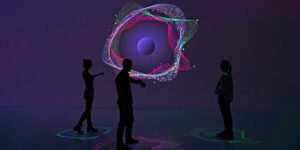
Deep Sync
Sharing Heartbeats in Immersive Space
Deep Sync creates an interactive playground for sound and visuals in the immersive Deep Space 8K environment. At the center of attention is the heartbeat of the visitors, which is artistically represented and thus has an effect on the entire group.
-
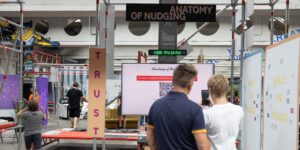
Anatomy of Nudging
Transparent AI for Society
The installation Anatomy of Nudging aims to involve users in the utilization of artificial intelligence and thus create a trusting relationship with AI. Anatomy of Nudging was the first installation of the Collective Transformation Lab – an enlightening self-reflection platform by the Japanese AI start-up Godot and the Ars Electronica Futurelab.
-
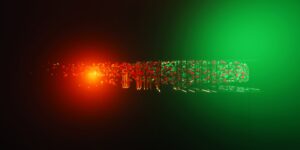
Data Art & Science Project
Art Creates Meaning from Data
How can art create meaning from data? The Ars Electronica Futurelab, in collaboration with Toyota Coniq in Japan, is envisioning “Data Art & Science,” a new interdisciplinary field that incorporates artistic perspectives on future transformations based on data science.
-
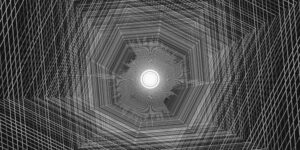
Media Spaces & Generative Art
Art by University Students in Deep Space 8K
2023 marked the 10th anniversary of students of FH OÖ (University of Applied Sciences Upper Austria) Hagenberg Campus working together with the Ars Electronica Futurelab on semester projects in which they creatively explore their approaches to interactive and generative arts.